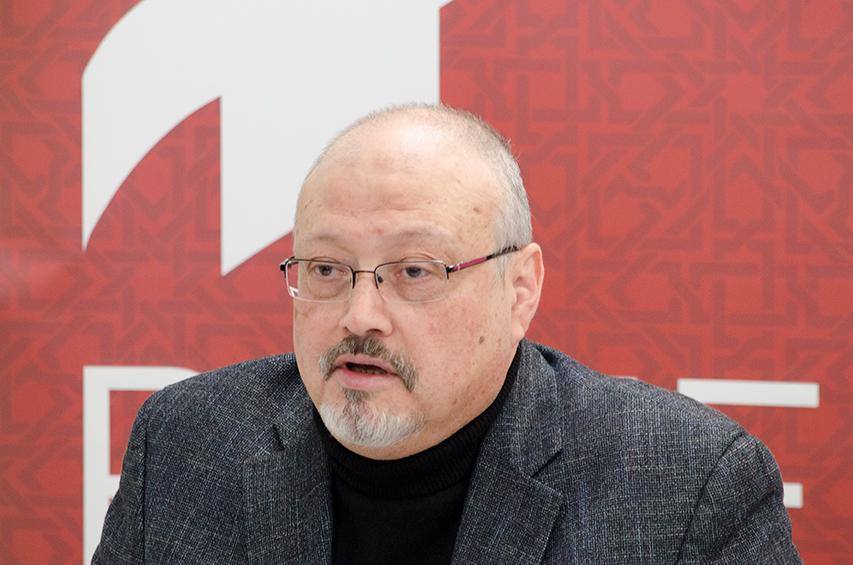The last column published by dissident Saudi journalist Jamal Khashoggi is a message about the importance of free expression in the Arab world, the importance of combating a state-run narrative that silences individual voices.
Khashoggi was tortured and murdered at the Saudi consulate in Istanbul earlier this month when Saudi agents with close ties to Crown Prince Mohammed bin Salman were waiting for him when he entered, according to audio recordings described by a senior Turkish official.
While the world has been looking to President Donald Trump for a response holding the Saudi government accountable, Trump has been sorely careful not to threaten Saudi Arabia’s status as a U.S. ally, too afraid of breaking economic ties with Saudi Arabia to condemn the murder of the journalist and accept the United States’ rightful responsibility as a purveyor of free speech.
Trump said in a CNN interview that a lot is at stake with Khashoggi’s death “because this man was a reporter,” recognizing that his profession may have played a role in his death, adding that this contributes to what is at stake.
But Trump called the crown prince a “strong person” with “very good control” in an interview with The Washington Post. He’s not only giving the Saudi administration the benefit of the doubt in Khashoggi’s death, he’s openly praising them despite Saudi Arabia’s humanitarian crimes.
Trump’s response shows a fundamental ambivalence to the fact that the Saudi government reportedly killed someone simply for speaking against their regime — maybe because Saudi Arabia is a U.S. ally, maybe because Trump sees himself reflected in the crown prince, maybe because the lives of journalists don’t matter to Trump.
Trump has said that his slander and borderline encouragement of violence against journalists is directed solely at the reporters who encompass the “fake news” media. Supposedly, he supports journalism when it’s honorable and truthful. His response to Khashoggi’s death has proven, once and for all, the inaccuracy of that statement.
Khashoggi represented exactly what the profession of journalism is supposed to be about: he spoke out against the arrests of peaceful individuals during crackdowns on political dissent by the Saudi government — the very abuse of power that Trump, as the leader of a major Democratic country, should be opposed to. He risked his life to give a voice to people who couldn’t speak for themselves.
Any dictatorship that silences the voices of those who speak out for their beliefs, no matter what they are — and especially if it’s because they’re unfavorable to the leader of that regime — should not be a friend of the United States.
The world can’t allow Khashoggi’s death to slide. Allowing Saudi Arabia to cover up the murder of a journalist sends a message that the crimes that that journalist was attempting to uncover can be brushed under the rug. Without people to report on these human rights violations, who will hold them accountable?
From an international standpoint, there’s a strategic partnership to be had with Saudi Arabia. But this doesn’t mean we can give them a free pass. Khashoggi’s death has put a spotlight on Saudi Arabia, but they’ve been allowing what United Nations officials have called “the worst man-made humanitarian crisis of our time” to worsen in Yemen for years. Calling this out now is the least we can do to underscore Saudi Arabia’s human rights record, and it doesn’t preclude us from working with them in the future.
When Saudi Arabia first began jailing dissident individuals, Khashoggi wrote in a column for The Washington Post that he was making the decision to sacrifice everything he knew in Saudi Arabia in order to raise his voice against the Saudi government. “To do otherwise would betray those who languish in prison,” he wrote.
Trump — and any leader who follows a money trail rather than a fundamental sense of right and wrong with their political alliances — can take a lesson from Khashoggi: if you have the power speak when others can’t, to waste it is a crime.

















































































































